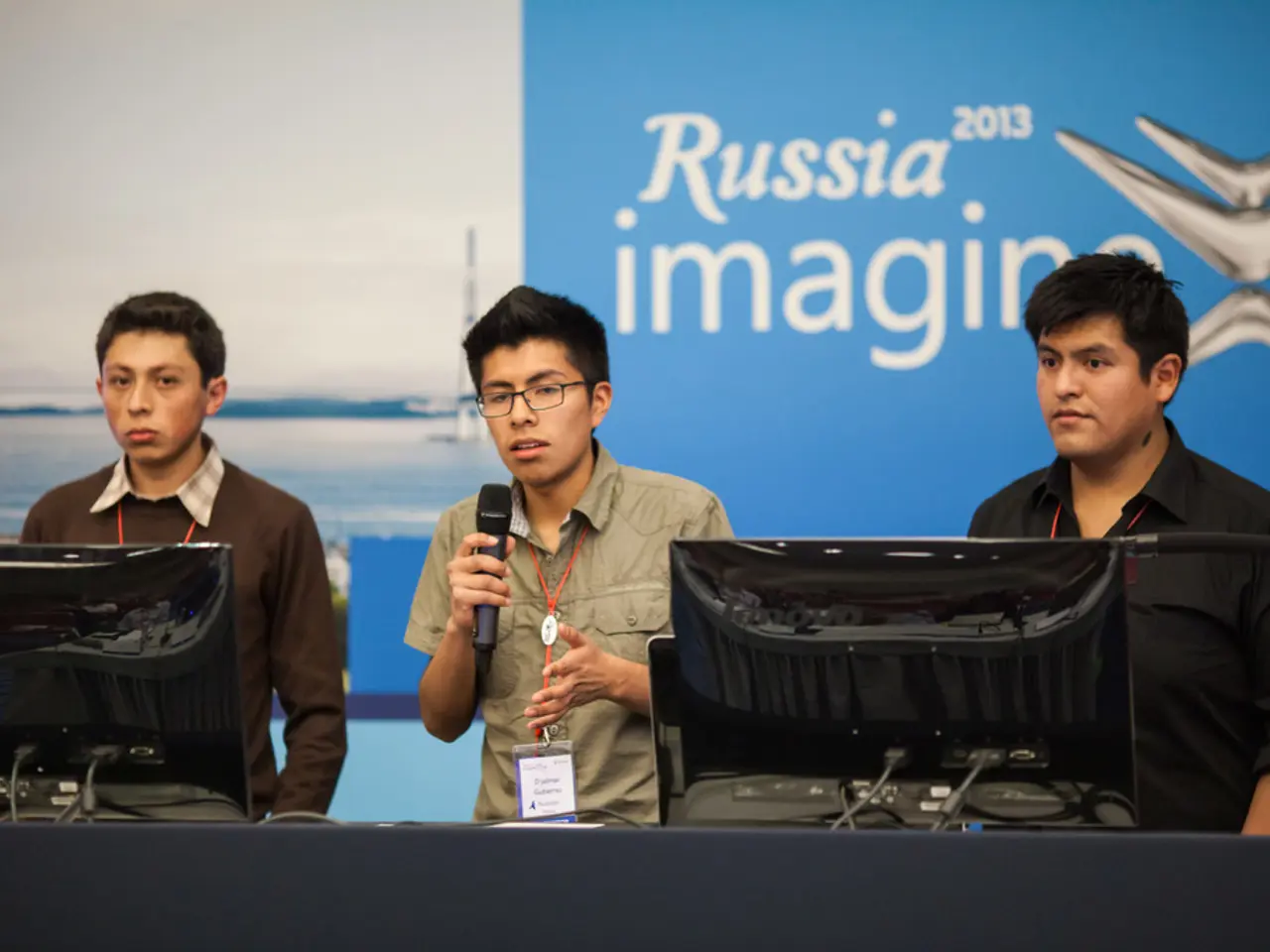Russia and Germany Clash Over Media Representatives
Title: Tensions Escalate: Russia Summons German Ambassador over Journalist Dispute
In an unexpected turn of events, Russia has expressed its displeasure towards Germany regarding the treatment of its journalists, leading to the summoning of German Ambassador Alexander Graf Lambsdorff to the Russian Foreign Ministry. Despite the tense meetings, no breakthroughs were reached, and German journalists are still facing the possibility of expulsion.
Link copied
Moscow-Berlin Face-off - The communication rift between Moscow and Berlin in the journalist controversy is evident in the unexpected summoning of the German ambassador to the Russian Foreign Ministry: Due to a misunderstanding, Ambassador Lambsdorff had to attend the tense and uncomfortable meeting twice. The gatherings failed to bring any new insights for the German journalists, who continue to loom over the threat of being expelled from Russia.
The German embassy shared that Foreign Ministry spokeswoman Maria Sacharowa used the opportunity to present her views on residential procedures affecting Russian journalists in Germany during the meeting. Lambsdorff acknowledged the explanations but emphasized the difficulties faced by German journalists in Russia and handed over a list of examples detailing instances of Russian authorities acting against the principles of press freedom.
The fiasco stems from the dispute over the treatment of correspondents of Russian state media in Germany. Specifically, it pertains to a representative of a Kremlin-linked media conglomerate on the EU sanctions list. The individual's residence permit has expired, and the Berlin Immigration Office refuses to renew it. Reports suggest that he is set to exit Germany by mid-August.
The passports of his wife and daughter have also been impounded, a representative from the authority confirmed upon request. The man himself voiced his concerns over a search of his residence in Russian media.
Moscow Stands Firm: Threat against German Journalists
The day prior, Foreign Ministry spokeswoman Sacharowa stated that Germany is not abiding by its obligations to safeguard press freedom and the diversity of opinions. She emphasized arbitrary decisions by authorities that no longer spare the families of journalists. She also hinted at impending countermeasures. Already during the St. Petersburg International Economic Forum last week, Sacharova threatened punitive measures against German journalists. She indicated that specific German journalists in Moscow were being selected for these punitive measures.
Misunderstood Meeting: The Search for an Interpreter
The specific steps were meant to be relayed to Lambsdorff during his visit. However, this did not seem to happen initially. The diplomat departed the Foreign Ministry building after mere minutes - in search of an interpreter. Sacharova poked fun at the ambassador, stating that he apparently did not understand Russian.
Lambsdorff had not forgotten the interpreter. He was informed that the meeting would transpire in English, he stated.
Two Hours of Talks: Few New Insights
The meeting resumed only after the translator's arrival from the embassy. Over two hours later, Lambsdorff departed the Foreign Ministry. As Russian media gathered upon his exit, he affirmed that the discussions were lengthy and engaging. Details about the content of the discussions remained undisclosed.
The Foreign Office in Berlin countered accusations from Russia about the handling of German authorities with correspondents of Russian state media, "Unlike the increasingly harsh Russian repression towards journalists, the principles of the rule of law and press freedom prevail in Germany," it stated from the Foreign Office. This sentiment was echoed by the German ambassador during the Russian Foreign Ministry meeting.
The Expulsion Threat Remains
The Russian Foreign Ministry, however, maintained its position. Lambsdorff was handed Russia's protest about the treatment of its own journalists. "It was highlighted that such openly unfriendly actions by German authorities will inevitably prompt a response from the Russian side," it stated in an official press release.
This leaves the potential expulsion of one or more German journalists in limbo. Past examples exist, with similar incidents having occurred at the end of 2024. Two employees of ARD were forced to leave Russia, with Moscow refusing to extend the residence permits of two men working for the Russian state television in Berlin. Moscow also claimed that the channel had been closed. Germany disagreed with this claim, asserting that the Russians were not expelled but that their residence permits had expired, and they could have appealed the decision at the time.
In the repercussions of the journalist controversy, the German Ambassador, Alexander Graf Lambsdorff, found himself in a meeting at the Russian Foreign Ministry, and despite the two-hour discussion, no new insights were obtained regarding the potential expulsion of German journalists in Russia. The communication rift between the nations was further heightened when the ambassador failed to fully grasp the proceedings due to a misunderstanding over the language of the meeting.





